Last Updated on August 9, 2024
From imaginary rock concerts your child can’t stop headbanging to, to shoving random objects up their nose and into their ears, taking off their clothes at inopportune moments, to being picky eaters whose taste buds change from one day to another, toddlers have strange behaviours that often drive parents up the wall!
Thank you for reading this post, don't forget to subscribe!
But what if we told you that these behaviours are pretty normal? In fact, we say that they are actually a good sign! These seemingly odd behaviours indicate their developing brains and bodies and allow them to express their feelings, even when they don’t have the words.
Still, why do they do each of these things? Let’s examine some quirky toddler behaviour to understand why they do it and offer tips for parents on navigating these funny yet normal actions!
Why Toddlers Do Strange Things And Tips To Help Them When They Do It
Here, we list some of the most universally strange toddler behaviours and explain why they happen! We also have some valuable tips for parents on supporting their children through these phases and help them grow into healthy young kids!
1. Taking Off Clothes/Nudity
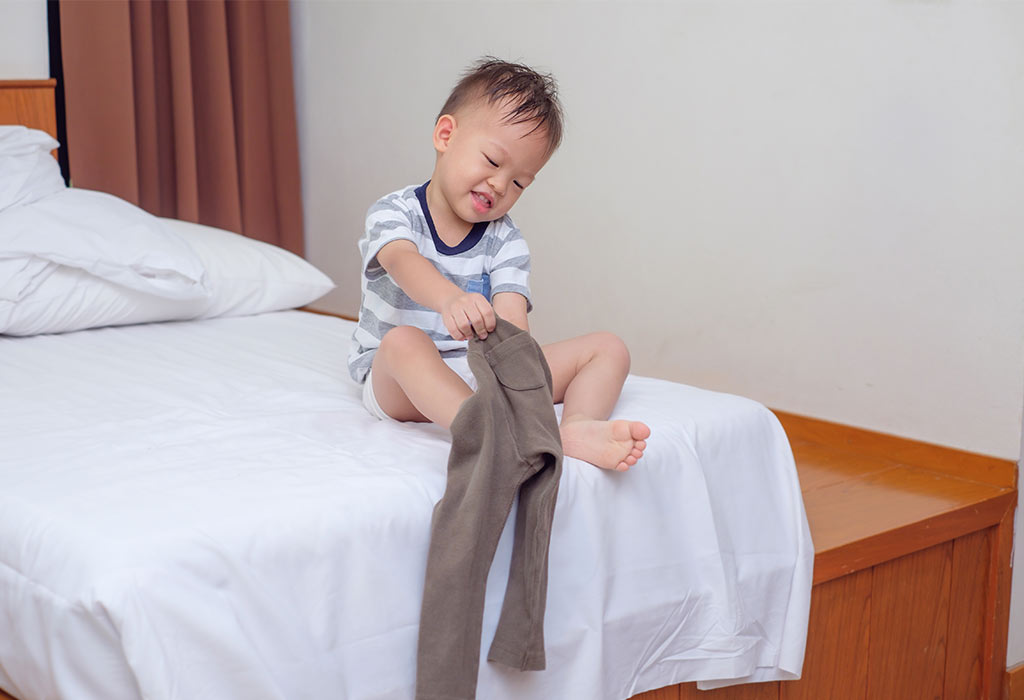
If you have ever wondered why your child takes off all their clothes on a whim and prefers to run around naked, here are some reasons why:
- Sensory Discomfort: Children take off clothes when they experience sensory discomfort. This might indicate their clothes make them feel too hot, itchy, tight, and uncomfortable.
- Confusion on Clothing Decorum: For them, wearing clothes during certain times and having them off during others is a confusing concept. They don’t understand why you take your clothes off during bathtime but must wear them outdoors!
How You Can Help
- Ensure that the clothes you buy and dress them up in are weather-appropriate, and use comfortable fabrics that are not itchy, warm, or tight.
- Allow them to pick their own outfits from time to time—even if it is a superhero costume or a princess dress. The autonomy will help them want to keep their clothes on and show them off!
- Be patient. While this odd behaviour might seem frustrating, they will eventually grow out of it. And think about it: it is a little cute!
2. Picky Eating

Does your child seem to like apples one day but can’t stand it the next? Or what if they like their carrots boiled and in circles but want them mashed on a different day? Here are some reasons why toddlers can be picky eaters:
- Developing Taste Buds: Their taste buds are not fully developed and are still getting used to different food tastes and textures.
- Communication Barrier: Toddlers don’t know how to communicate their preferences yet. So, while they want to say, “I don’t want to eat it now/or this way,” they might say, “No!” or “I don’t like it!”
How You Can Help
- Feed them various foods to see what works best for them and what doesn’t. Try to keep it as balanced as possible, but also sneak in a few treats occasionally!
- Don’t force them to eat what they don’t want – this can make them much fussier.
- Give them smaller portions of food so that they can consume all that is served.
3. Regressive Behaviour
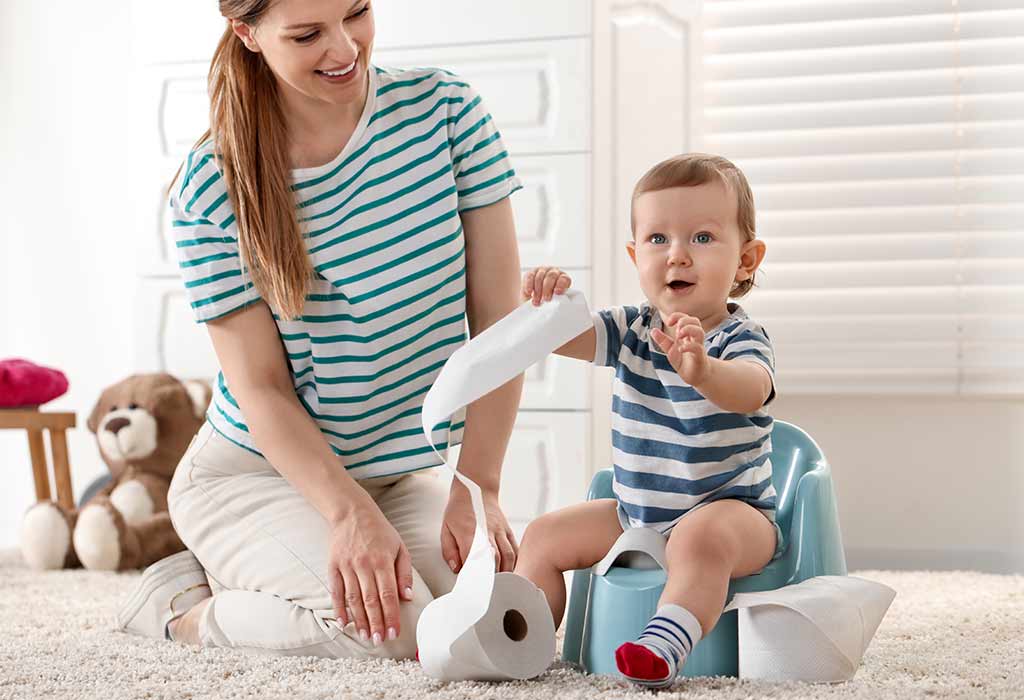
Regressive behaviour refers to a child returning to earlier stages of development. This could include bedwetting or undoing their progress with nap time or potty training. But why does this happen? We tell you why:
- Interrupted Sleep Pattern: Rapid brain and body development throws off their sleep cycle, making them tired, fussy, and childlike (compared to the toddlers they already are!)
- Break In Their Routines: A change in their routine caused by illnesses, unknown environments, or a change in their daily schedule can cause bathroom accidents.
- Anxiety Caused By Unfamiliar Settings: If they are exposed to new or unfamiliar settings, it can cause stress and anxiety, leading to regression.
How You Can Help
- Potty train your toddler again.
- Wait for triggers to pass and ensure you can return to their usual routine. A consistent routine is key to overcoming regressive behaviour.
- Talk to your toddler in gentle, calming, and reassuring tones and let them know you are there for them, both physically and emotionally.
4. Self-Touch
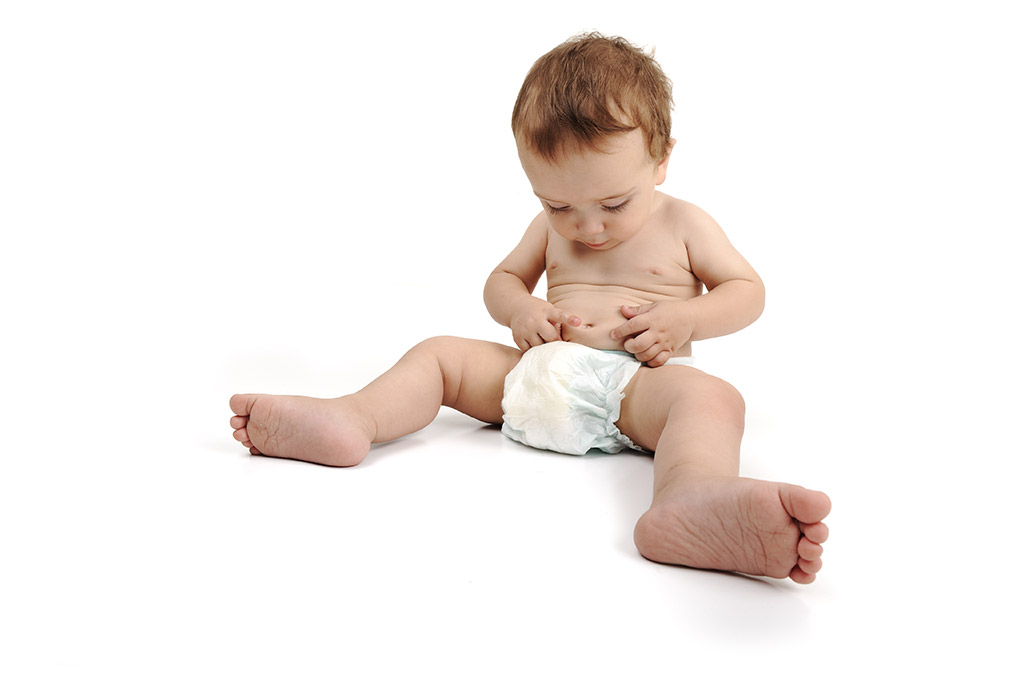
Have you ever caught your children peeking into their pants or seeming to touch themselves? While this behaviour is taboo in an adult’s world, it is quite common for toddlers. Here’s why:
- Understanding Their Bodies: As they grow and develop, toddlers are coming to terms with and trying to understand their bodies.
- Curiosity: These changes make them curious, and they use touching to explore what is going on! The difference they observe between their bodies and the bodies of their siblings and friends can also perk curiosity.
How You Can Help
- Distract your child and redirect their attention by getting them involved in some activity or getting them to play with a toy.
- Avoid fussing over this behaviour, and don’t shame or scold them.
- Teach them what is appropriate and what isn’t as they grow older.
5. Head Banging/Rocking Back And Forth
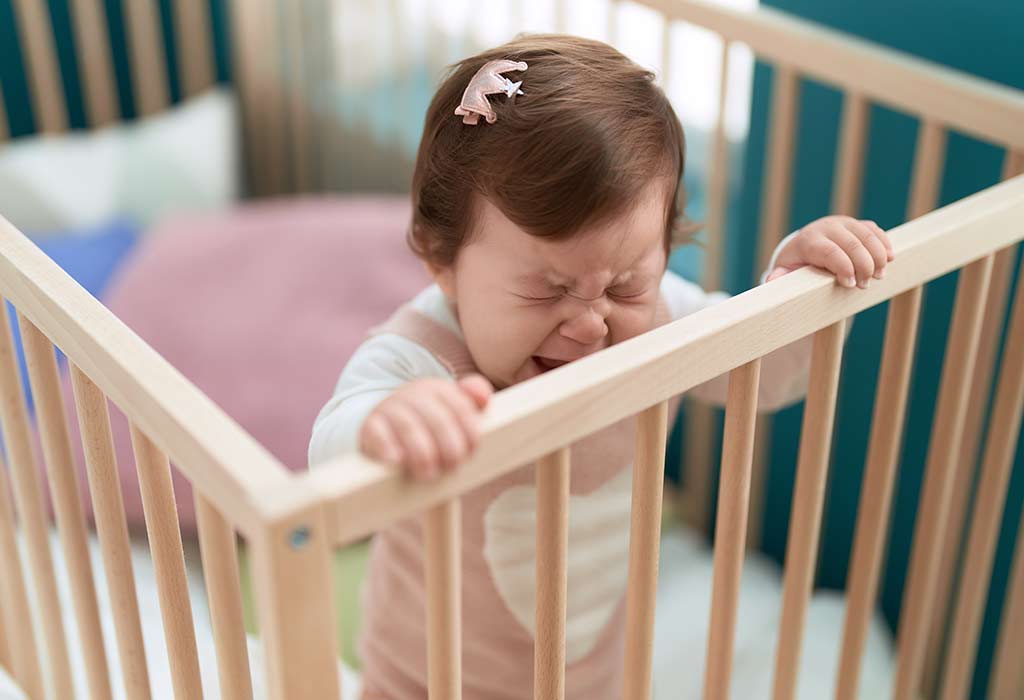
It might have been quite alarming to see your baby rocking back and forth in their crib or banging their head on the floor, crib, or wall. But this, too, is perfectly normal:
- Calming Technique: Rocking back and forth is a self-soothing technique babies use. The rhythmic movement acts as a calming stimulus that puts them at ease.
- Experiencing Discomfort: Head banging might indicate that your child is experiencing some pain, discomfort, or difficulty falling asleep, but they don’t know how to communicate this.
How You Can Help
- Don’t try to stop them. It has the opposite effect and makes them want to do it more!
- Soothe them using dim lighting, calming music, reading bedtime stories, or rocking them to sleep.
6. Playing With Poop
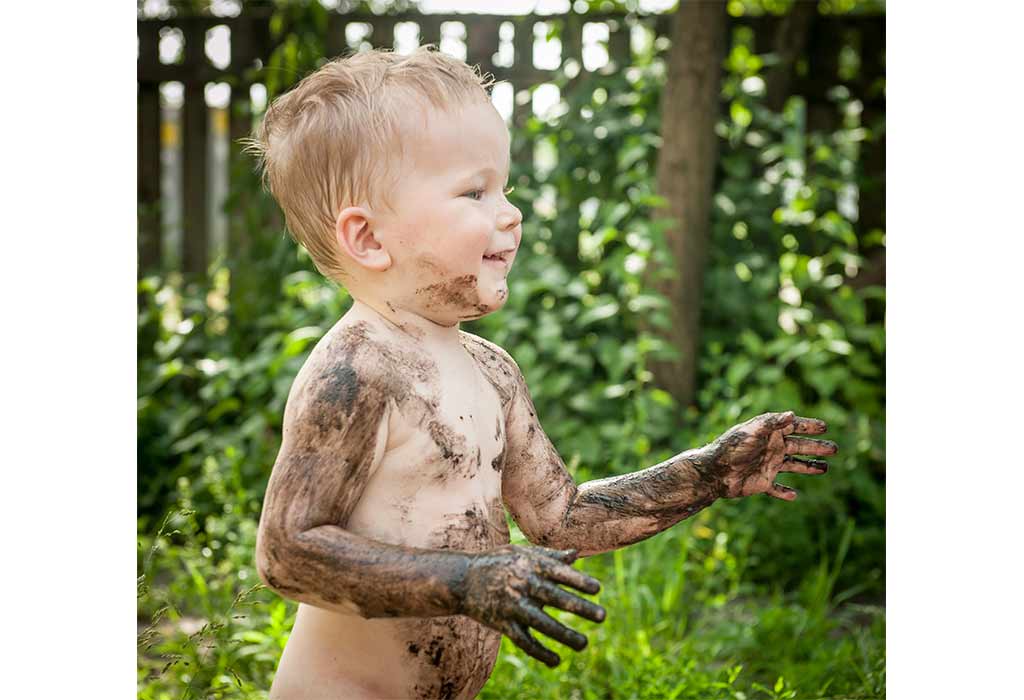
This one might touch a nerve and make your scrunch your nose up with disgust, but playing with poop is more common among toddlers than you think! This is why:
- Understanding Their Bodies: Just like with self-touch, playing with a poop is a way for them to understand their bodies and the things that come out of it!
How You Can Help
- This is a sign to potty train your little one!
- Once you clean them up, redirect their attention to toys and your words.
7. Shoving Objects In Nose And Ears/Picking At Them
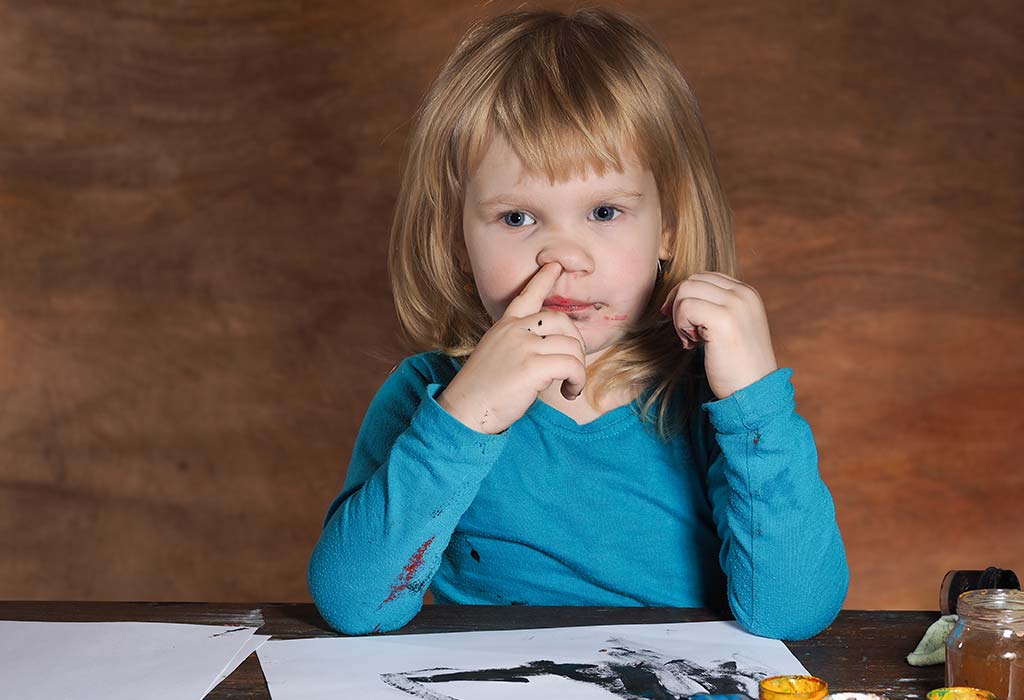
Another worrisome behaviour that causes scares and leaves you frustrated. But what if this odd behaviour is their way of saying something is up (other than the object!)? Here’s their reasoning:
- Exploring Their Body: Picking their nose or ears and putting objects into them is another way for them to see what their body is made up of and what it can do!
- Sign Of Discomfort: Nose and ear picking can also indicate an underlying cause, such as a blocked nose, an allergy, or pain in the nasal passages or ear canals.
How You Can Help
- Keep hazardous objects away from your toddler’s reach.
- Consult a paediatrician if your child has lodged an object in their nose or ears or if you think they are suffering from a medical illness.
8. Imaginary Play
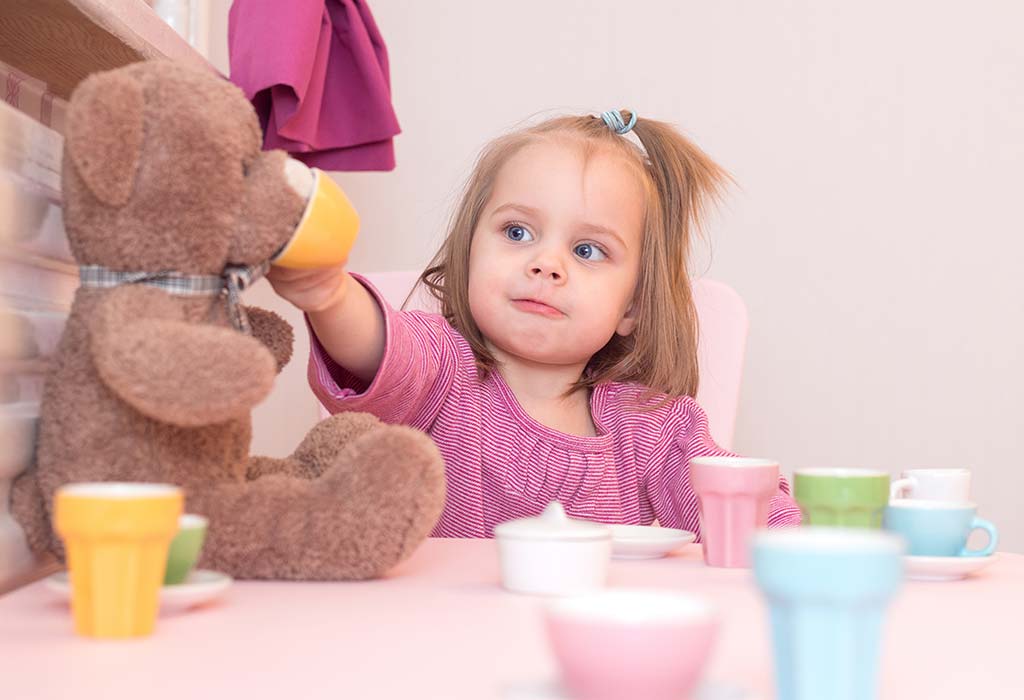
Has your child ever had a tea party with their imaginary friend or talked to one that they say is next to them all day? Should you worry about it? No! And here’s why:
- Interacting With Surroundings: Imaginary play is a way for toddlers to understand and interact with their surroundings.
- Developmental Phase: It indicates the development of cognitive, social, emotional, and motor skills.
How You Can Help
- Don’t get upset if your child plays with the box instead of the toy – it is a sign that their imagination is blossoming, and that’s a great thing!
- It’s okay if your child plays independently with other children without engaging with them. It is their social journey that will evolve as they grow!
These toddler behaviours, however quirky, are significant indicators of their social, emotional, cognitive, and motor development. While they are a little odd, they should be celebrated as a milestone!











